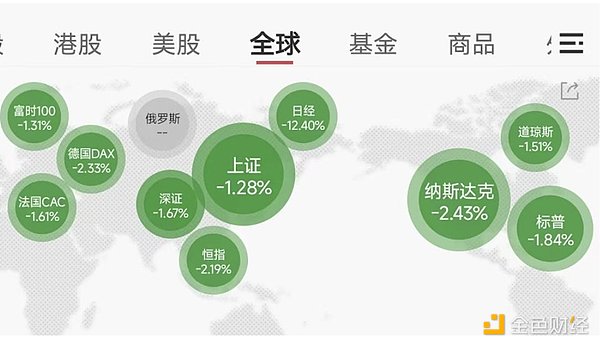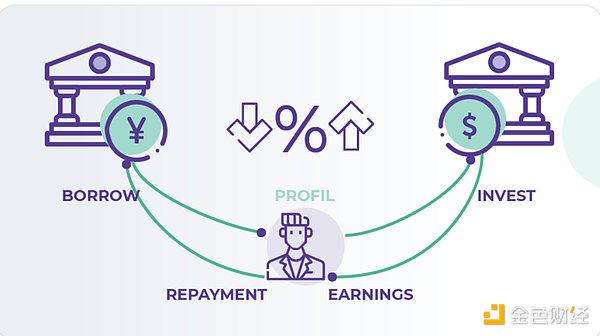The monetary policy moves of the Bank of Japan (BOJ) have been closely watched by the global financial market recently. The latest news shows that the BOJ plans to decide to further raise the policy interest rate at its monetary policy meeting scheduled for January 23-24, with the expectation of raising it from the current around 0.25% to around 0.5%, reaching the highest level since the 2008 financial crisis. At the end of July last year, the yen rate hike led to a global financial market crash. Will this trend continue this time?
The market turmoil caused by the previous yen rate hike
Last year, the BOJ has carried out two rate hikes, completely bidding farewell to the negative interest rate era.
On March 19, 2024, the BOJ adjusted the policy interest rate from -0.1% to between 0% and 0.1%. After the rate hike decision was announced, the Japanese stock market experienced some volatility, with the Nikkei 225 index and the Tokyo Stock Exchange index falling in the short term. The global capital market, including the cryptocurrency market, also experienced significant volatility.
On July 31, 2024, the BOJ raised the interest rate again, from 0% to 0.1% to 0.25%. The global financial market experienced violent fluctuations, with the yen-dollar exchange rate soaring by 0.4% at one point, reaching the highest level in 7 months, and many Asia-Pacific markets plummeting. Among them, the Nikkei 225 index fell by more than 12%, setting a record for the largest decline; the Korea Composite Stock Price Index fell by more than 10% during the session, triggering a trading halt, and European and American stock markets also fell. Bitcoin fell from $60,000 to $49,000, a drop of about 15% intraday, and Ethereum fell by 23%, with the market in a state of despair.

Why does the yen have such a great influence?
As the world's largest carry trade currency, changes in the interest rate policy of the yen have a far-reaching impact on the global financial market. For a long time, due to Japan's maintenance of super-low interest rates, the yen has become the preferred currency for international capital to seek high-yield financing. Investors borrow yen at low cost and then invest in high-yield assets such as US bonds, US stocks, cryptocurrencies or assets of other high-yield countries to earn the interest rate spread.
Rate hikes will lead to a rapid appreciation of the yen in a short period of time. Taking the "Black Monday" caused by the previous Japanese rate hike as an example, after the BOJ suddenly raised interest rates, the increase in borrowing costs and the reduction in market liquidity led to a stock market decline. If investors previously used cheap yen to finance and invest in high-yield markets, they not only have to bear the decline in high-yield assets, but also face losses due to the appreciation of the yen exchange rate. When investors sell US dollar assets to repay yen debts, it further exacerbates the price decline of financial assets such as US stocks. At the same time, due to the liquidation of carry trade, a large amount of funds flowed back to Japan, further pushing up the yen exchange rate, leading to more yen closing pressure, forming a vicious circle.

Will this rate hike continue to replicate the previous trend?
In the financial market, expectation is the precursor to behavior. The BOJ's previous rate hike was not within market expectations, and the market generally expected to maintain the current interest rate without raising it, so the unexpected rate hike clearly increased the market's panic sentiment.
However, the impact of this rate hike on the market may be relatively limited. On the one hand, the BOJ has communicated fully with the market to avoid unexpected changes in monetary policy, and with the continuous release of information and the market's expectations being fully priced in, the market uncertainty has decreased. On the other hand, compared to July 2024, the current market's net short position in the yen is not at an extreme level, so the possibility of a reversal is not high. In addition, the US economy is relatively strong, which has reduced the market's concerns about a global economic recession, helping to stabilize market sentiment.
As the US-Japan interest rate differential gradually narrows, carry trade may decrease, and the downward pressure on the yen may be alleviated. This will help improve the competitiveness of the Japanese economy and attract more international capital to the Japanese market, boosting the Japanese stock market.
Although the market has already had relatively full expectations of the rate hike, the rate hike itself may still bring some volatility to the market. Therefore, investors should closely monitor the market response and use more flexible and efficient trading tools to cope with market changes.

4E, as the global partner of the Argentine national team, integrates a variety of financial products such as cryptocurrencies, foreign exchange, commodities, stocks and indices. It supports the trading of indices such as the Nikkei Index, and also provides leveraged long and short trading of mainstream currencies such as the yen, US dollar, euro and pound, helping investors to flexibly respond to market fluctuations and capture investment opportunities. In addition, it also has wealth management products with an annualized yield of up to 5.5%, providing potential hedging options for investors.







